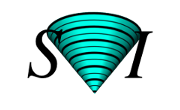Upcoming Events
Subscribe for upcoming webinars
Webinar recordings
Through these events, we aim to provide insights into how you can optimally acquire images, perform image QC, and correct any imaging artifacts using Huygens. This all with the aim to obtain scientifically more solid and quantitative results when using for example the Object Analyzer, Object Tracker and Colocalization Analyzer.
Like to stay informed about future webinars and events? Fill out this form.
Missed our latest webinar? Not to worry, you can watch it here.
February 17, 2026 at 9:30 and 18:00 CET.
Simply select the (network) folder to monitor, and Huygens takes care of the rest: detecting new images, deconvolving them, and saving the results to a dedicated output folder of your choice. Your original raw data are preserved, giving you full confidence in your results and complete traceability for publications and peer review.
Join this webinar to experience how Huygens seamlessly integrates into your imaging workflow, boosts image quality automatically, and helps you extract maximum scientific value from every experiment—without adding extra workload. Reserve your seat here.
March 17, 2026 at 9:30 and 18:00 CET.
Join us if you are working with light sheet data! Register here
April 16, 2026. Similar sessions at 9:30 and 15:30 CEST.
However, if you are ready to take the next step in your scientific imaging career, we invite you to join this free workshop, as many others have done before. Click here for reviews.
During the workshop, you will learn how to optimally acquire microscopy data, understand and apply the true meaning of deconvolution, identify and correct common acquisition issues, and discover how easy it is to get started with Huygens to create professional 3D renderings and analysis results within minutes.
A workshop manual, demo images, and a temporary Huygens Everywhere trial will be provided free of charge during the course. You may also find that your imaging facility already has access to Huygens. Join us and register now! Reserve your seat here.
